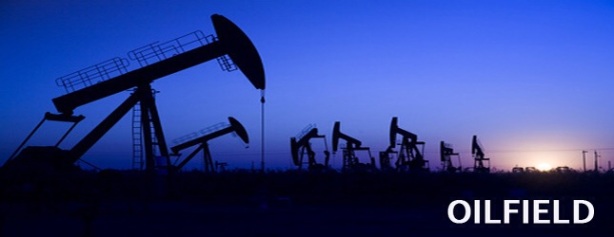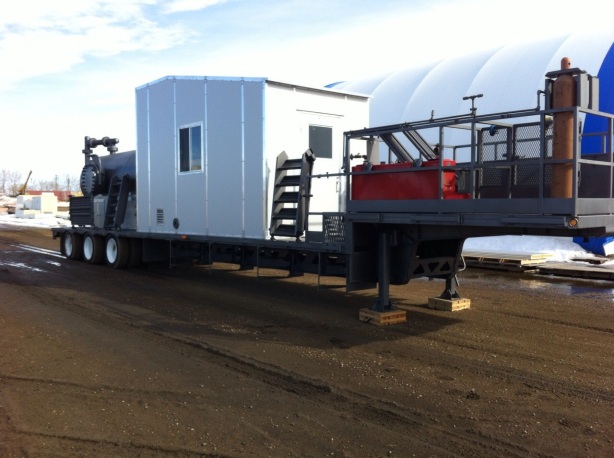Oil projects worth more than $150-billion face the axe in 2015 because of plunging prices
Posted: December 5, 2014 in UncategorizedBank of Canada more worried about household debt than falling oil prices
Posted: December 4, 2014 in UncategorizedOil crash carnage is the big question in Bank of Canada’s decision today
Posted: December 3, 2014 in UncategorizedIs the Canadian Oil Game Rigged?
Posted: November 24, 2014 in UncategorizedTags: alberta, alberta energy, alberta oil, alberta oil and gas, canada, canada energy, canada oil, canadian energy, canadian oil, canadian oil and gas, energy, fracking, oil and gas, oil patch, oilfield, shale, xtra energy, xtra energy services
Source : In Columns SUSTAINABILITY MATTERS
By Jason MacLean
Thunder Bay
TransCanada plans to spend big, but project uncertainty looms,” read a recent headline in The Globe and Mail.
The newspaper went on to describe TransCanada as a “Calgary-based pipeline and power giant” and explained to those of us who choose to think about sunnier topics than the politics of oil pipelines that the projects in doubt include TransCanada’s proposed Keystone XL and Energy East pipelines.
But TransCanada apparently intends to do more than just spend big. According to documents prepared for TransCanada by Edelman, one of the world’s largest public relations firms, Edelman is advising TransCanada to “add layers of difficulty for our opponents, distracting them from their mission and causing them to redirect their resources.” To this end, Edelman proposes that TransCanada recruit third parties to do and say things “when TransCanada can’t” (Energy East Campaign Organization document, page 3).
More specifically, Edelman suggests that TransCanada “[w]ork with third parties to pressure Energy East opponents” (Strategic Plan: Quebec document, page 9).
The documents are available at greenpeace.org/canada/Global/canada/file/2014/11/Astroturf-backgrounder.pdf.
The thinking behind this sort of strategy was recently exposed by The New York Times. The Times reported the remarks of PR expert Richard Berman, who was secretly taped telling oil industry executives to “fight dirty or lose pretty” and to “think of this as an endless war . . . . And you have to budget for it.”
Hence the plans to spend big.
But surely this sort of strategy won’t work in a democracy like Canada, right? Surely we have laws to prevent industry from undermining environmental rules and regulations?
Think again.
Think about the Extractive Sector Transparency Measures Act, an act before Parliament (parl.gc.ca/HousePublications/Publication.aspx?Language=E&Mode=1&DocId=6737565&File=464&Col=1). If passed, this new law would help people in countries rich in natural resources — including Canada — hold their governments to account by requiring companies engaged in the commercial development of oil, gas or minerals in Canada or abroad to disclose payments made to all levels of government — including aboriginal entities — regarding such projects.
Sounds reasonable enough. Sunlight, after all, has long been considered the best disinfectant.
The trouble is that this law is already under attack by — guess who? — the oil industry.
Now, I know what some of you are probably thinking: isn’t this is all just so much pipeline paranoia?
Well, the trouble with that is that a former vice-president of Shell Canada and a current member of the governing board of the Natural Resource Governance Institute, Alan Detheridge, recently exposed the Canadian oil industry’s efforts to weaken the Extractive Sector Transparency Measures Act before it’s even passed.
Writing in The Globe and Mail, Detheridge reports that the oil industry opposes disclosing payments for individual projects, preferring instead to report aggregated payments, thus depriving local communities and governments of meaningful project-level information.
Moreover, some oil companies are also seeking exemptions from reporting payments when they operate in countries that prohibit such reporting, thereby depriving communities of information where it is most needed and enabling already corrupt regimes.
But this really shouldn’t come as much of a surprise by now. After all, it’s public knowledge that the Alberta Energy Regulator receives 100 per cent of its operational budget from the oil and gas industry it’s supposed to regulate.
Is it just a coincidence that, as The Globe and Mail recently reported, “[o]il sands production has surged — from 1.3 million barrels per day in 2006, to 1.9 million by 2012, a figure projected to double by 2022 — but the resource’s regulation has remained dubious”?
More recently, the independence of the National Energy Board — the federal agency nominally responsible for regulating oil pipelines and energy projects in Canada — has also been seriously questioned. And with good reason. Should our courts and governments continue to defer to a board that, according to oil industry expert Andrew Nikiforuk, includes “no public health expert. There is no expert in environmental assessment, there is no pipeline safety expert, there is no representative from First Nations, there’s no representative or expert from fisheries, no oil spill or contamination expert. It’s a board of white people, mostly Conservatives, all based in Calgary, all with very similar backgrounds, whose job is largely to facilitate the pipeline approval in the country”?
The Québec provincial government no longer thinks so. After the Québec National Assembly unanimously “deplored” the National Energy Board’s indefensible refusal to consider the environmental impacts of rising greenhouse gas emissions and urged the government to “quit” the board’s environmental assessment process, the province has imposed seven conditions on TransCanada’s Energy East pipeline proposal, including an assessment of its impact on greenhouse gas emissions and climate change. That way, the province can properly assess the project’s relative costs and benefits.
Maybe there’s hope that Canada’s oil pipeline game isn’t completely rigged after all.
Jason MacLean teaches law at Lakehead University and writes for The Chronicle Journal bi-weekly.
Why you shouldn’t watch the news
Posted: November 22, 2014 in UncategorizedTags: alberta energy, alberta oil, canada, canadian energy, canadian oil, energy, fracking, industry, news, oil and gas, shale, xtra energy
I’ve been closely watching the news articles online and on twitter and have been posting them as well. It’s amazing the different views that get spread. How do you believe or agree to any of it. Good writers share their views in hopes of the public agreeing or seeing their point. But headings always sound like the worst case scenario, and news is almost never positive. The oil price is down. One article says CRASH!While the next says the drop is going to be beneficial. The dollar in Canada is down. The recession is coming again they say. The housing market is going to crash they say. I just read and commented on an article trying to sell people on fracking being as harmless as household chemicals because the new fad seems to be protesting anything to do with fracking, oil sands or pipeline expansion. People need jobs! People need heat, electricity, fuel for their cars, planes to ride to vacations, cook their food. I’m sure the protestors didn’t ride their bikes or walk to Fort Mac, or Vancouver. I like clean air and water too, but people need to understand it’s a very wealthy industry. Why put fear into people? Why try and make up b.s? People want and need information, and the internet is exploding with it. How do you know what to believe anymore with so many “Experts” telling you facts and fiction? It actually stresses me out! I’ll need to climb in a hole to clean my brain of all the mixed media. Life happens. There’s ups and downs. Just have to live, and be strong, Darwinism.
Written by Tammy Amstutz
Today (18 Nov 2014) at 6:15pm EST the US Senate will vote on the approval of the Keystone XL pipeline. As an unbuilt commodity sitting in limbo for the last 6 years, the decision to face more delays or scrap the project has been an area of focus for the TransCanada and the Alberta energy industry for years. The topics at the heart of the debate include environmental concerns, political strategies, jobs economy, presidential support from Obama, the destinations of the barrels of Canadian oil – and with so many issues at play it’s impossible to predict which direction the Republican controlled US Senate will go, though Alberta Premier Jim Prentice seems to be positive, being quoted this week saying “We’re hopeful, we’re optimistic. You know the growth of bipartisan support for the Keystone pipeline is really encouraging. There’s momentum and the future will take…
View original post 523 more words

